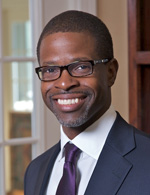Gifted leaders often feel as though anything is possible. Sooner or later they learn the truth. It’s not. And the earlier they develop the capacity to notice and respect our limitations, the more vibrant their ministries and joyful their lives will be.
Pastors are sometimes celebrated and congratulated by how much we overextend ourselves. This inevitably leads to deep disappointment, regret, cynicism, or worse. Perhaps what is urgently needed for Christian leadership is not the means to do more, but the discernment to know our limitations. Moses was fortunate to learn this lesson early in ministry.
When Moses began leading the Israelites, he overcame overwhelming external challenges. The Red Sea blocked his path as the hoof beats of Egyptian horses grew louder behind him. God parted the Red Sea and the Israelites crossed over safely to the other side. In the Desert, the Israelites suddenly realized there was no water to drink. They quarreled with Moses, and after a conversation with God, Moses struck a rock and water miraculously appeared for the people. Then he led Israel to victory over the Amalekites as Aaron and Hur held up his arms all day long until the battle was over.
All these were memorable moments in which Moses certainly became more confident in God and in his own ability. But could it be that his most transformational experience is one in which he gained the wisdom had to know what he could not do?
As Moses sat among the Israelites each day to single handedly take on the task of serving as judge for the people, his father-in-law, Jethro, said, “What is this you are doing for the people? Why do you alone sit as judge, while all these people stand around you from morning till evening?” (Ex. 18:14). Jethro assured Moses that if he kept this up he was going to wear himself out. Moses was a powerful prophet, a gifted preacher and a valiant commander, but he did not know his limitations.
I began pastoring when I was 28 in a small, family church in North Carolina. My wife and I had only been married three months and my seminary degree was less than six months old. My first order of business as a new pastor was . . . everything. I was present at every meeting. In the first twelve months, I probably preached fifty Sunday sermons, not counting revival services (still common in my tradition) and occasional sermons at local churches for Sunday afternoon programs.
When people called to invite me as a guest preacher, a false sense of modesty kept me from seeing how these sometimes last-minute invitations nursed my need to be needed. I could not say “no.” They needed me to preach. Sometimes they even said so.
Over the years, I have learned to take a different approach. The birth of a son and an honest evaluation of what I wanted out of life, marriage and ministry has helped me to make different choices. I remember the first time I told someone I could not accept an engagement to preach even though there was nothing else scheduled on my calendar. A sense of relief washed over me. I felt like I was making a choice about how to spend my time and energy, rather than having choices made for me.
Acknowledging limitations is to some a sign of weakness. In Christ, it is a source of strength. The strength of God meets us in our weakness. Too many leaders in ministry make the mistake of thinking that leadership is always a function of how much we can do. Sometimes success is measured by the wisdom of knowing what we cannot do.








